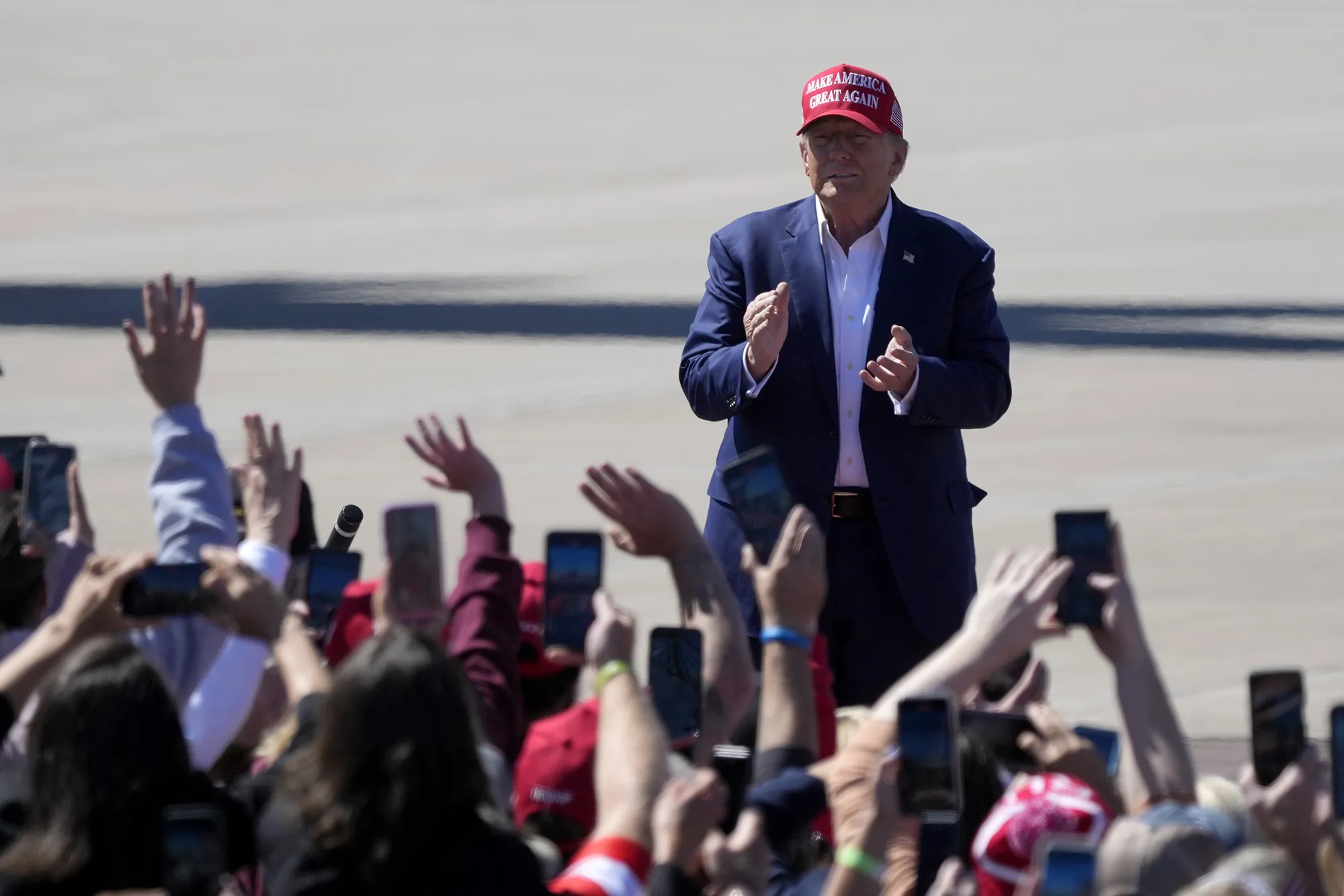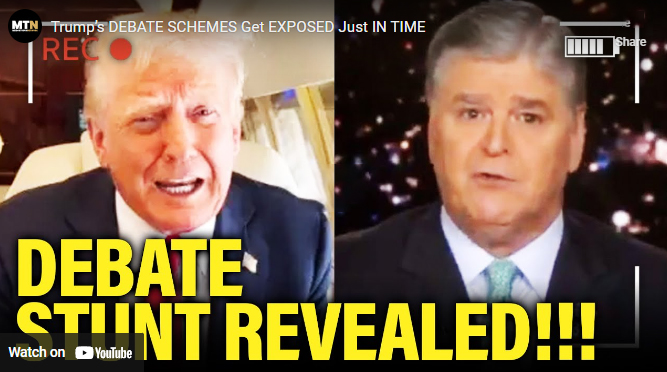As Donald Trump prepares for an upcoming debate, his familiar playbook of manipulation and misinformation is once again on full display. Over the years, Trump has consistently employed a strategy designed to undermine the legitimacy of debates by attacking both the media outlets hosting the events and the moderators responsible for guiding the discussions. This tactic serves a dual purpose: to cast doubt on the fairness of the process and to precondition his supporters into believing the deck is stacked against him, no matter how poorly he performs. As this latest debate approaches, Trump’s tactics have been exposed just in time, giving the public a chance to see through the manipulation.

The formula is simple but effective. First, Trump attacks the network hosting the debate. Whether it’s CNN, ABC, or another outlet, his goal is to convince his supporters that the media is biased against him and that the debate is rigged from the outset. This rhetoric is amplified by his allies in conservative media, particularly figures like Fox News’ Sean Hannity, who perpetuate Trump’s narrative of victimhood. By the time Trump steps onto the debate stage, his base is already primed to believe that he is entering a hostile environment where he will be treated unfairly.
This strategy has been employed time and again. Before the 2020 CNN debate with President Joe Biden, Trump, with help from Hannity, launched a full-scale attack on CNN and its moderators, Jake Tapper and Dana Bash. Hannity went so far as to declare that Tapper was “disqualified” from moderating the debate, labeling him a “radical left-wing partisan.” This relentless criticism was designed to paint the moderators as biased and set the stage for Trump to claim he had been treated unfairly, regardless of his actual performance.
Trump’s allies amplified these claims. Hannity hosted panel discussions in which participants suggested that Trump might be better off skipping the debate altogether, as it would be rigged against him. Lara Trump, a frequent surrogate for the former president, echoed these sentiments, warning that CNN would create a “three-on-one” situation, with both moderators and Biden teaming up against Trump. The aim was clear: sow distrust in the debate process and rally Trump’s supporters to view any outcome other than victory as a media conspiracy.
Fast forward to today, and the same playbook is being used again—this time targeting ABC and its moderator, George Stephanopoulos, ahead of the next debate. Trump has been relentless in his attacks on Stephanopoulos, dubbing him “George Sloadoffalopagus” and labeling him “nasty” and “biased.” These childish nicknames are part of Trump’s broader strategy of delegitimizing anyone who poses a challenge to him. The constant barrage of insults, amplified by conservative media outlets like Fox News, primes Trump’s base to see the debate as unfair, regardless of how it plays out.
In a coordinated effort to ramp up the pressure, Hannity has gone a step further, effectively threatening Disney, ABC’s parent company, with a conservative boycott if the debate doesn’t go Trump’s way. Hannity openly questioned Disney CEO Bob Iger, asking if he wanted “conservatives to patronize Disney theme parks and Disney products,” suggesting that a biased debate could harm the company’s bottom line. This is part of a broader effort to intimidate the media into giving Trump favorable treatment or face financial consequences.

But what’s even more concerning is that Trump’s rhetoric before debates isn’t just about whining—it’s about preparing his supporters to interpret any result in his favor. Even if he performs poorly, Trump primes his base to see him as a victim of bias. In a recent speech, Trump complained that even if he “destroyed” Vice President Kamala Harris in a debate, the media would claim he had suffered a humiliating defeat. This preemptive excuse-making ensures that his base will continue to support him, regardless of his actual performance on stage.
It’s important to recognize these tactics for what they are: deliberate attempts to manipulate public perception. By constantly attacking the moderators and networks hosting the debates, Trump is working to lower expectations and shield himself from accountability. When he performs poorly, as he often does, his supporters are already conditioned to believe that the game was rigged against him from the start. This allows Trump to avoid taking responsibility for his own shortcomings, while keeping his base fiercely loyal and angry at the perceived injustice.
What makes this manipulation particularly dangerous is how deeply ingrained it has become in right-wing media culture. Fox News, Sinclair Broadcasting, and other conservative outlets are complicit in pushing Trump’s narrative, ensuring that his base is bombarded with these messages over and over again. It’s a cycle of reinforcement that makes it difficult for Trump’s supporters to see past the rhetoric and critically evaluate his performance.
The question now is how to break this cycle. It’s clear that simply pointing out the lies and manipulation isn’t enough. Trump’s base has been conditioned to reject any criticism of their leader as “fake news,” and his constant attacks on the media have eroded trust in journalistic institutions. The solution lies in education and transparency. By exposing the playbook Trump uses ahead of each debate, we can help people see through the manipulation and understand how they are being influenced.
This is where independent media and grassroots efforts come in. Networks like Midas Touch have taken up the mantle of pushing back against Trump’s tactics, highlighting the methods he uses to manipulate the narrative. By sharing this information widely, we can counter the influence of right-wing media and encourage people to think critically about what they are being told. It’s a long-term effort, but one that is essential if we are to restore trust in the democratic process.
In conclusion, Trump’s debate schemes are nothing new, but they are as dangerous as ever. His attempts to delegitimize the media and manipulate public perception ahead of debates are part of a broader strategy to avoid accountability and maintain his grip on his base. As this latest debate approaches, it’s crucial that we expose these tactics for what they are and work to counteract the manipulation. Only by shining a light on Trump’s playbook can we hope to ensure a fair and informed debate process.



